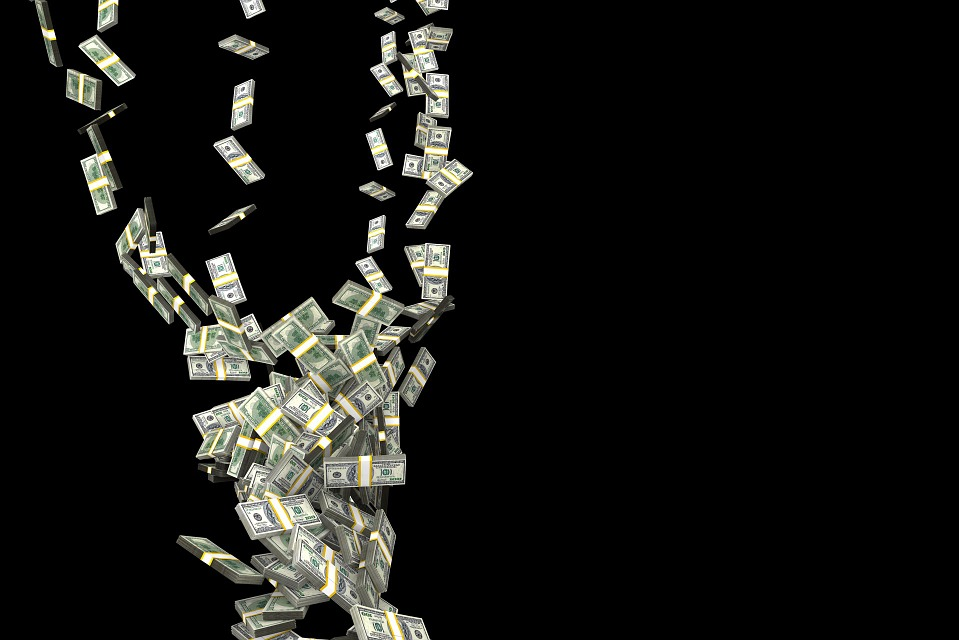Without question, President Donald J. Trump and the Republican-led Congress have a lot of work to do to restore the U.S. economy after it was ravaged by former President Barack Obama and Democratic policies.
Things are so bad, in fact, that a majority of us are now living literally from paycheck to paycheck — meaning any interruption of our income stream would put scores of Americans in dire financial straits.
As reported by CNBC, that includes 10 percent of Americans who are making $100,000 or more:
Seventy-eight percent of full-time workers said they live paycheck to paycheck, up from 75 percent last year, according to a recent report from CareerBuilder.
Overall, 71 percent of all U.S. workers said they’re now in debt, up from 68 percent a year ago, CareerBuilder said.
What’s more, under half of those surveyed — 46 percent — said their debt was “manageable,” leaving fully 54 percent who admitted they were in over their heads.
And it’s not getting any better for these folks, either. CareerBuilder found that more than half — 56 percent — said they could only put away $100 or less each month.
The employment website said it surveyed more than 2,000 hiring and human resource manager and more than 3,000 full-time workers between May and June to obtain the results.
Meanwhile, CBS News reported similar findings: Nearly 80 percent of those surveyed said they have to live paycheck to paycheck:
With unemployment in the U.S. at its lowest level in 16 years, experts are prone to talk about the economy as if it has fully recovered from the housing crash. But other measures of how Americans are doing reveal a darker picture.
“Living paycheck to paycheck is the new way of life for U.S. workers,” said Mike Erwin, a spokesman for CareerBuilder, in an interview with CBS News. “It’s not just one salary range. It’s pretty much across the board, and it’s trending in the wrong direction.”
Throughout Obama’s eight-year, two-term tenure, the U.S. economy never once reached three percent growth in annual GDP for even a single quarter — something that’s never happened in the history of the country.
So even though employment figures are up, overall Americans’ economic picture isn’t bright.
Why is that? There are a number of reasons — some the “mainstream” media will discuss and some it won’t.
One reason is wage stagnation, as Erwin told CBS News; another is that virtually all consumer services and goods are much more expensive than they should be or have been in recent years.
But why are they more expensive? Much of that is due to government policies. Obamacare, for instance, has raised the cost of doing business for thousands of companies, via higher labor and compliance costs. Obamacare has ravaged the health insurance industry, causing premiums and out-of-pocket deductibles to skyrocket.
Government bureaucracy and red tape — much of which was implemented during the Obama years — has also led to major downward pressure on company earnings, leading them to expand less, hire fewer workers while depressing wages. Education costs have gone through the roof — but they would when a) government lenders guarantee loans so b) colleges and universities jack up tuition to take advantage of all the free money.
Last year, about 75 percent of Americans said they were living paycheck to paycheck; that figure has risen this year to 78 percent. And with the Bureau of Labor Statistics noting that some 122 million are in the full-time workforce, that means about 95 million are teetering on the fiscal edge. (Related: There is a storm of civil unrest coming and you need to be fit to fight … Here’s how to prepare)
Believe it or not, this is a prepper issue. Household debt coupled with an inability to sock away cash hurts your ability to stock up and prepare for emergencies. Financial experts advise that you should have six months in savings socked away in case you lose your job or otherwise cannot work for a while. Most Americans don’t even come close to that; can you imagine the social chaos if a major economic event caused massive job losses?
Get busy now reducing your debt in any way possible. Also, check out this list of items that WON’T lose value should SHTF.
J.D. Heyes is a senior writer for NaturalNews.com and NewsTarget.com, as well as editor of The National Sentinel.
Sources include:


